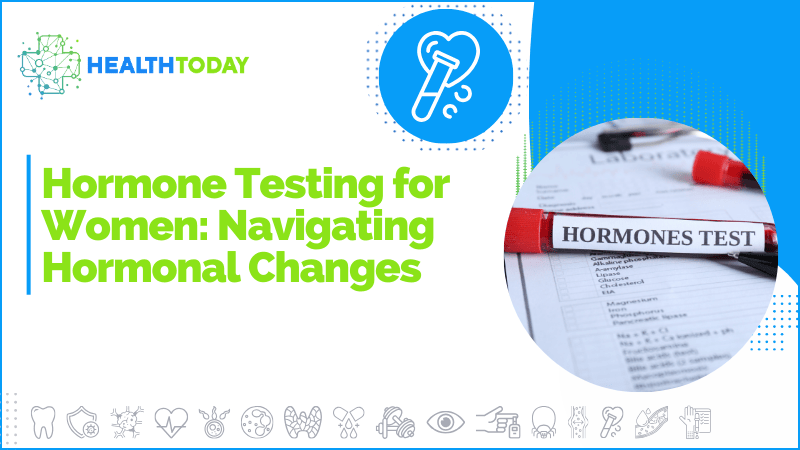
Hormones play a pivotal role in women's health. Hormones influence every aspect of women's health, from fertility and menstrual cycles to menopause and emotional well-being. Hormone testing offers crucial insights, enabling early detection of imbalances and guiding personalized treatments. Whether you're experiencing irregular periods, fertility challenges, or mood swings, hormone testing empowers you to take control of your health. Embrace the power of hormone testing, as it paves the way for optimal well-being and a harmonious relationship with one's hormones.
As women, our bodies undergo a series of complex hormonal changes throughout our lives. From puberty to pregnancy, menopause, and beyond, hormones play a vital role in regulating various bodily functions. However, hormonal imbalances can lead to a range of health issues, affecting physical and emotional well-being. Hormone testing offers valuable insights into our body's hormonal status, empowering us to understand and address these changes effectively. In this blog, we'll explore the significance of hormone testing for women, its benefits, and how it can help navigate the ups and downs of hormonal fluctuations.
Hormones act as chemical messengers, influencing almost every aspect of a woman's health. They control menstrual cycles, fertility, metabolism, mood, and bone health, among others. Even small hormonal imbalances can have significant effects on the body. Hormone testing plays a crucial role in identifying these imbalances and providing a clear picture of hormone levels, enabling healthcare providers to develop personalized treatment plans. Whether you're experiencing irregular periods, fertility challenges, mood swings, or other symptoms, hormone testing can help pinpoint the root cause and guide appropriate interventions.
Throughout a woman's life, hormonal fluctuations are natural and expected. Puberty, pregnancy, postpartum, and menopause are all stages characterized by significant hormonal changes. However, excessive or prolonged imbalances can lead to distressing symptoms. Hormone testing allows healthcare professionals to monitor hormone levels at different life stages and detect any deviations from the norm. Identifying these fluctuations can lead to timely interventions, helping manage symptoms and improve overall quality of life.
Menopause marks a significant milestone in a woman's life when hormonal shifts bring about various changes in the body. Symptoms like hot flashes, night sweats, mood swings, and vaginal dryness can disrupt daily life. Hormone testing during menopause is essential in understanding hormone levels and determining if hormone replacement therapy (HRT) is a suitable option to alleviate symptoms. Hormone testing also helps assess the risk of osteoporosis, heart disease, and other conditions associated with menopause, enabling women to take proactive measures for long-term health.
For women struggling to conceive, hormone testing plays a critical role in understanding fertility. Testing progesterone, estrogen, luteinizing hormone (LH), and follicle-stimulating hormone (FSH) levels helps identify ovulation patterns and potential fertility issues. It provides valuable information for fertility specialists to devise appropriate treatment plans, such as fertility medications or assisted reproductive technologies. Hormone testing not only helps improve chances of conception but also offers insights into reproductive health and potential concerns that may impact future fertility.
As women, understanding and managing our hormonal changes are fundamental to overall well-being. Hormone testing empowers us to navigate the complexities of our bodies, ensuring timely interventions when needed. By identifying hormonal imbalances and fluctuations, we can take charge of our health and embrace personalized treatments that address our unique needs. Whether it's managing menopause, enhancing fertility, or addressing other health concerns, hormone testing offers valuable insights that pave the way for a healthier and more balanced life. Embrace the power of hormone testing to gain a deeper understanding of your body and foster a harmonious relationship with your hormones. Remember, prioritizing your health is a journey of self-care and self-empowerment, and hormone testing is an invaluable tool in this endeavor.
Written on behalf of Health Today Inc.
Hormone testing involves a simple blood draw, saliva or urine sample collection, conducted at a clinic or healthcare facility.
Yes, hormone testing during perimenopause can provide insights into hormone fluctuations and guide symptom management.
The frequency of hormone testing depends on individual health needs and concerns, as advised by healthcare professionals.